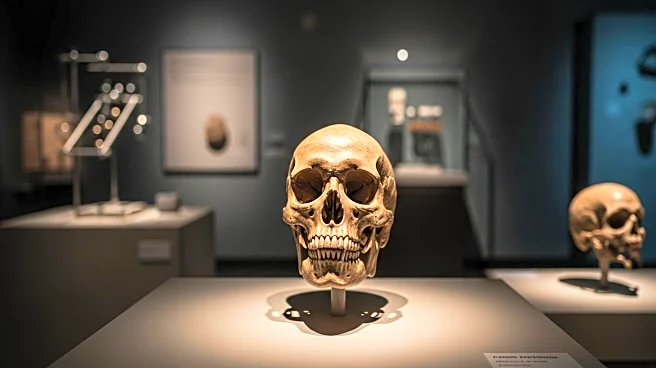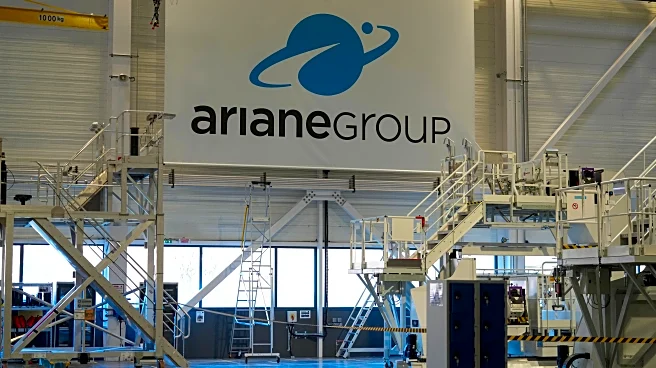What's Happening?
A significant discovery has been made in Hubei province, China, where researchers have digitally reconstructed a human skull, known as Yunxian 2, originally unearthed in 1990. The skull, estimated to be between 940,000 and 1.1 million years old, was previously considered an indeterminate Homo erectus fossil due to its crushed state. Recent high-resolution CT scans and 3D modeling have revealed that Yunxian 2 does not match classic Homo erectus but instead belongs to a sister lineage linked to Denisovans and Homo longi, also known as 'Dragon Man.' This finding suggests that human lineages may have diverged far earlier than previously thought, potentially altering the timeline of human evolution.
Why It's Important?
The discovery of the Yunxian 2 skull could have profound implications for our understanding of human evolution. If the analysis is confirmed, it suggests that modern humans may have emerged approximately 400,000 years earlier than current fossil records indicate. This challenges established timelines and theories about the divergence of human lineages. The skull's features, which include a combination of primitive and advanced traits, provide a new perspective on the evolutionary processes that shaped our genus. The study highlights the importance of Asia in the human evolutionary narrative, suggesting that the region played a crucial role in the development of diverse human species.
What's Next?
Further research and verification are necessary to confirm the findings related to the Yunxian 2 skull. Experts have called for additional evidence, such as direct dating of the site and more fossil discoveries, to support the claims made by the researchers. The study has sparked interest in the Asian fossil record, which may yield more insights into human evolution. As the scientific community reviews and challenges these findings, the potential rewriting of human evolutionary history remains a topic of significant debate and exploration.
Beyond the Headlines
The discovery of Yunxian 2 contributes to the ongoing debate between the Out-of-Africa and multiregional evolution theories. While the established view supports the idea that Homo sapiens originated in Africa, the complex Asian fossil record suggests that early Asian populations may have influenced human evolution through deep coevolution. This finding underscores the diversity and longevity of hominins in Asia, highlighting the region's significance in the broader context of human origins.












